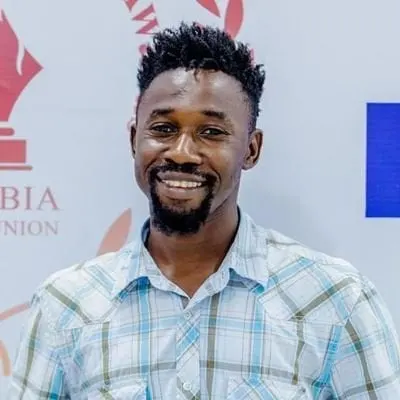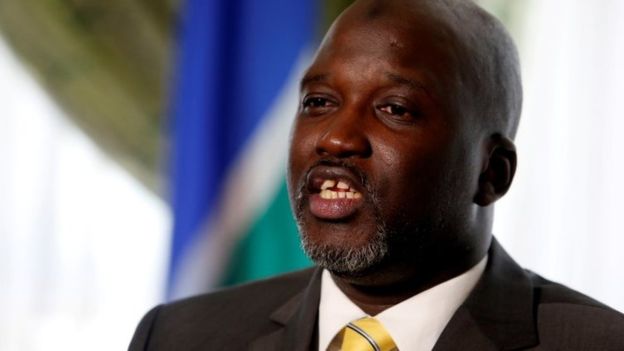
Journalism is the last line of defence against oppression, corruption, and the distortion of truth. When powerful individuals attempt to dictate narratives, silence investigative reporters, or bend facts to fit their convenience, it is the duty of the free press to stand firm.
Today, we honour Republic Investigative and its Editor-in-Chief Mustapha K. Darboe for their unshakable commitment to press freedom, resisting pressure from National Human Rights Commission (NHRC) chair Emmanuel Daniel Joof and Media Council officials to exonerate former Attorney General and Justice Minister Abubacarr Tambadou from wrongdoing in the sale of Yahya Jammeh’s assets.
Despite intimidation, potential lawsuits, and veiled threats, Republic Investigative has refused to retract its story or surrender its journalistic integrity. This is not just a victory for independent journalism—it is a statement that truth will not be rewritten at the whim of political figures. This is not just an attack on one journalist—it is an attack on the integrity of the Gambian press.
The April 30 exposé, “The Assets of Gambia’s Former Dictator Go for a Song,” unearthed critical issues of corruption and opacity in the sale of Jammeh’s assets. In response, NHRC and Media Council officials attempted to coerce Republic Investigative into issuing a joint statement clearing Tambadou of any wrongdoing.
Let this be clear: It is not the duty of journalists to sanitise reputations. It is their duty to report facts, expose corruption, and hold power accountable.
NHRC Chair Joof, MCG Executive Secretary Bai Emil Touray, and MCG Governing Council Chair Baboucarr Cham crossed a dangerous line when they summoned Darboe to pressure him into clearing Tambadou’s name—an act that strikes at the very foundation of a free press.

Their claim that the article caused “confusion” and damaged Tambadou’s reputation amid his nomination for the International Court of Justice is nothing more than a blatant attempt to suppress unfavourable truths.
And when intimidation failed, they resorted to insinuating that Darboe had been paid to publish the investigation, a desperate and baseless attack on his credibility. This is not just an attack on one journalist—it is an attack on the integrity of the Gambian press.
The Gambia Press Union (GPU) has rightly condemned this intimidation, defending the fundamental principles of journalism. GPU Secretary General Modou S. Joof called out the payment insinuation as preposterous, while GPU President Isatou Keita denounced the proposal to “tweak the facts” as a direct violation of journalism ethics and public trust.
Let there be no mistake: The GPU’s response was not merely a defence of Republic Investigative—it was a defence of press freedom itself.
In a democracy, journalists must not be bullied into rewriting truth. GPU’s courage in challenging the Media Council and NHRC officials reinforces the fact that press freedom cannot be dictated by political influence.
The intimidation of Republic Investigative is a chilling reminder that press freedom is fragile—it must be defended, reinforced, and protected at all costs. If those involved in the sale of Yahya Jammeh’s assets believe they are innocent, they should allow transparency to reveal the truth, rather than attempting to silence journalists who dare to question them.
We demand:
1. An immediate end to all forms of coercion against Republic Investigative and its journalists.
2. A formal apology from NHRC and Media Council officials for their attempt to manipulate investigative reporting.
3. A reaffirmation of press freedom by all governing bodies responsible for safeguarding democratic principles.
Independent journalism must never bow to political influence.
Republic Investigative’s stand is a victory—but it is also a warning: Gambian journalists will not be silenced. We stand in solidarity with Mustapha K. Darboe, Republic Investigative, and the GPU—because truth is not negotiable.
By Alagi Yorro Jallow
The author is a veteran journalist and political commentator based in New York, USA.










Recent Comments